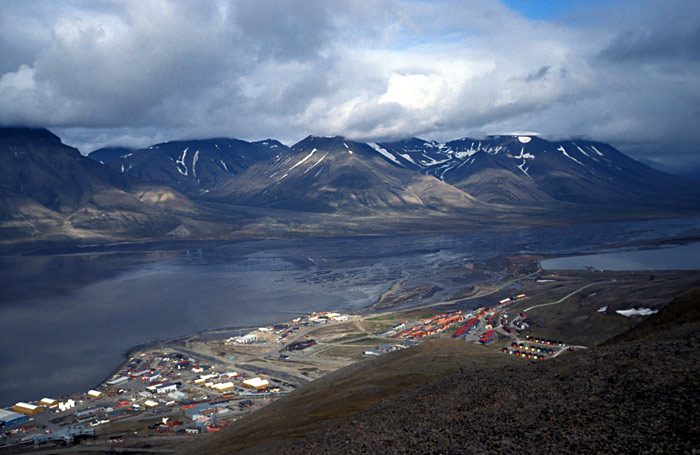12th of August 2007
First, let me tell you about this place called Svalbard. We just got here today and for being the hottest month of the year (August), it was freezing! I have never been so far north in my life...but then again most people havn´t. Svalbard is one of the most northern places where people still live....alll the way up in the Polar Circle. Svalbard is an archipelago lying in the Arctic Ocean north of mainland Europe, about midway between Norway and the North Pole.

Why are we here??
It's been discovered that the conditions of this area are the most similar to Mars that can be found on planet Earth, according to the samples we got from the Martian meteorite ALH84001.
A group of Scientists and researchers are spending two and a half weeks in this nothern area to investigate and to characterize the geology, geophysical features, biosignatures, and possible life forms of volcanic centers, warm springs, and perennial rivers, settings thought to be analogous to sites on ancient Mars.
The project has been named AMASE (Arctic Mars Analog Svalbard Expedition), and this was the one of the series that is taking part in the year 2007.

One of the most important places is the Bockfjord Volcanic Complex (BVC). You can see here the map of this huge island in the Artic zone:

Some things you probably didn't know about Svalbard:
Polar Bears are one of the animals that inhabit this archipelago so all people need to take precautions when outside the settlements: this includes carrying a rifle. We have to take an Arctic Safety Course in the University centre in Svalbard: UNIS.
Today we checked in at the Spitsbergen Guesthouse. It was nice and cosy, the hotel staff was very hospitable, and the ESA members made me feel as if I were at home away from home. They even gave me a tour of where I would be staying.


Some information and photographs have been taken from:
-http://www.nasa.gov/mission_pages/mars/news/amase06_mission.html
-http://homepages.see.leeds.ac.uk/~earlgb/AMASE/project.html
-Wkipedia
-http://astrobiology.ciw.edu/

